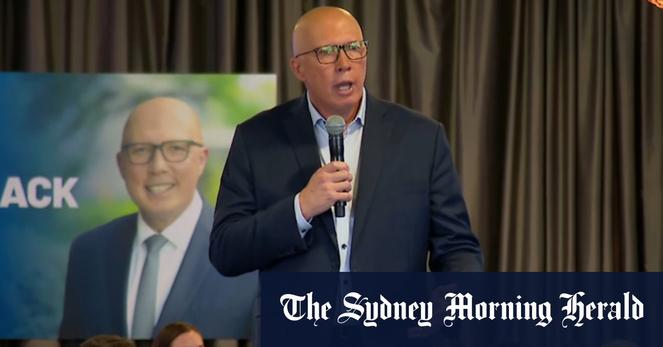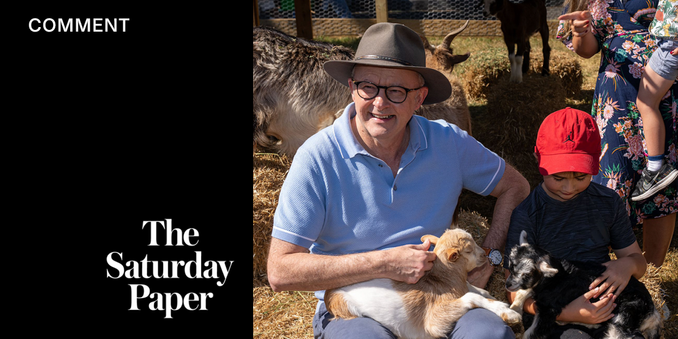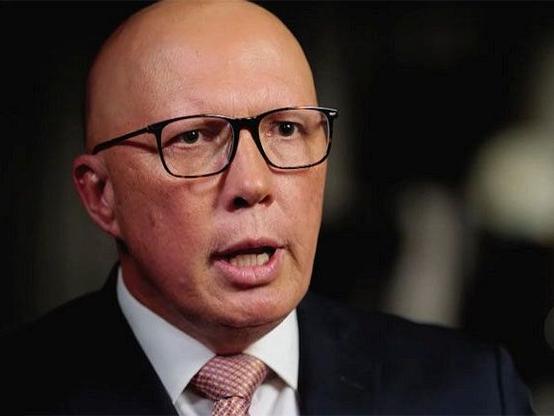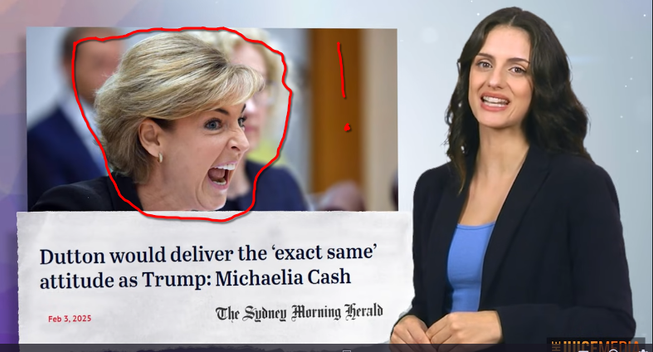@sister_ratched Sigh, all i wanna do is quietly finish my muesli n have my coffee, but no, oh nooooo, i get subtly nagged into having to do this stuff. I wanna pay rise.
Mark Kenny (paywalled)
QUOTE BEGINS
The most consequential policy pivot in the election campaign went almost unnoticed
Some may find it strange that the most consequential policy pivot announced in the election campaign went almost unnoticed.
Strange, too, that it was timed to elude electors in winnable seats who were already voting.
Seeking to justify a dramatic $21 billion increase in military spending over five years, Coalition defence spokesperson, Andrew Hastie, stepped up to the microphone in front of Peter Dutton and explained bluntly "America is moving to an America-first posture ... we have a strong relationship with them but can't take anything for granted."
Outlining an aspiration to lift defence spending to 3 per cent of GDP over a decade, he said the country faced the "most dangerous strategic circumstances since the Second World War".
Many Australians would agree with that diagnosis, terrified that Donald Trump's America has shifted from a global force of stability to a net creator of instability.
More than a million Australians who have voted ahead of election day will have missed this startling Coalition admission that the central pillar on which this nation's security rests might already have toppled.
If it really is the Coalition's clear-eyed assessment that a priority shift is required from hospitals, schools and infrastructure towards a new strategic self-reliance, why did it wait until now to say so?
Its bombshell recalibration was secreted between Easter and Anzac Day, and then was further swamped by the death of Pope Francis.
Only the last of these complications was unforeseen, and yet even the Papal death was not wholly surprising, as evidenced by the fact that Dutton's office issued a written statement within an hour.
There are more questions. Why was it the unknown Hastie who, having been warehoused in the Coalition's national campaign, finally said out loud that the US alliance may be a dead letter?
It wasn't, as cynics might conjecture, that he had been beavering away on the details of the policy. For a start, there were few fine-grain details as to specific new capability timelines. Neither was it the case that the policy itself had been hastily conceived or belatedly upgraded to arrest Dutton's descending poll numbers as his campaign faltered.
I understand Dutton and Hastie had quietly informed some of Australia's partner governments in the last months of 2024 that the Coalition would promise to increase defence spending, even stipulating the quantum expansion of $21 billion.
Again, one wonders, if the policy was both urgently required and ready-to-go last year, why was it not released then, well ahead of the campaign? This might have given the Coalition a fighting chance of leveraging its superior credentials in national security just as Labor had done with its pre-election $8.5 billion Medicare boost.
In the weeks leading up to the delayed April election announcement, I asked a senior minister if Labor was concerned about a likely Coalition emphasis on defence and national security. The answer conveyed a level of insouciance along with an explanation that any new defence expenditure would require other savings to be listed, or it would simply worsen the bottom line.
Still, not even an overly confident government expected its opponents to withhold such a key policy plank until the death-knell, thus failing to capitalise on a brand strength.
The emergence of Trump as a risky negative in the campaign has brought forth missteps and mealy-mouthedness on both sides.
When Anthony Albanese was asked during the second leaders' debate if he trusted Donald Trump, he didn't hesitate: "Yeah, I have no reason not to."
Really? This flew in the face of observable reality given the shambolic circus in Washington and the amateurish havoc currently washing through the global trading system. Has there ever been a less trustworthy American leader?
If Albanese's answer reflected a fear of Trump's epic pugnacity, Dutton's response to the same question served two different imperatives. First, the wider latitude that comes with not being in power, and second, Dutton's desperation to create distance from the unpopular American after previously welcoming Trump's triumphant anti-woke reprise.
"We trust the US," Dutton responded, conspicuously de-emphasising any personal element in the bilateral relationship. "I don't know the president. I've not met him". Gone was Dutton's glowing testimonial of Trump, the shrewd and visionary big thinker.
The shabby and disreputable theatre of this election campaign has heaved with such sophistry, but let us not delude ourselves that it is just politicians who are guilty.
When racist neo-Nazi agitators disrupted solemn dawn service commemorations on Friday, the condemnation across mainstream media was universal. But in screaming "we don't need to be welcomed to our own country" as Indigenous representatives spoke, these traitors to Australian values were citing the words emblazoned across the front pages of the most venerated newspapers around the country. Including on that very morning
Media organisations justify their ad revenue bonanza from Clive Palmer's openly divisive pro-Trump Trumpet of Patriots on the grounds of freedom of political expression. This is risible.
After Dutton's opportunistic repudiation of the Voice, Friday morning's outrage is a further denial of Australia's true history. The dawn service attacks by neo-Nazis are a down-stream consequence of mainstreaming racism and vileness. Worse may be to come.
Between Trumpian hatred and self-serving media nihilism, there is plenty of shame to go around.
- Mark Kenny is The Canberra Times' political analyst and a professor at the ANU's Australian Studies Institute. He hosts the Democracy Sausage podcast.
QUOTE ENDS
#AusPol #ClimateCrisis #WomensRights #ShitParty1 #ShitParty2 #FsckOffDutton #WhyIsLabor #NoNukes #VoteGreens #ProgIndies #TuckFrump








